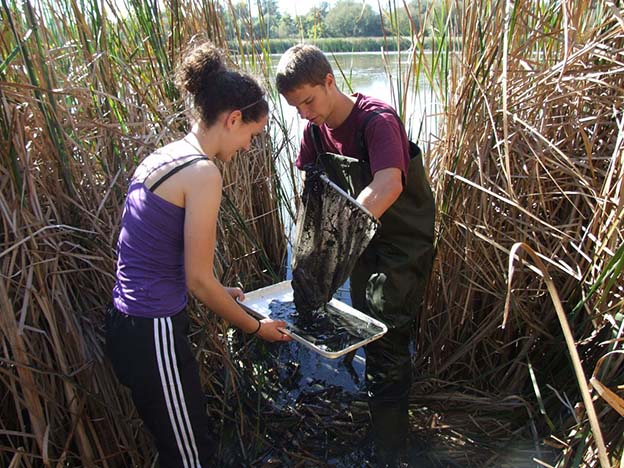Ontario’s universities are ‘Bringing Life to Learning’

Students in the Integrated Science Program sample water from Cootes Paradise, adjacent to McMaster's campus. A report released Wednesday by the Council of Ontario Universities says applied learning is one of the fastest growing areas for universities.
Ontario’s universities, including McMaster, are equipping the next generation of leaders with the skills they need for career success by providing students with real-life work experience through placements, co-ops and internships across all disciplines.
Bringing Life to Learning at Ontario Universities, a report released Wednesday by the Council of Ontario Universities (COU), says applied learning is one of the fastest growing areas for universities.
Key findings:
- Statistics Canada’s most recent National Graduates Survey shows graduates with a bachelor degree and co-op experience earn more than their peers. They also have higher full-time employment rates and are more likely to pay off their debt within two years.
- Today, work-integrated learning programs at Ontario universities span all disciplines, from environmental science to fine arts, engineering and health sciences.
- In an increasingly competitive job market, experiential learning makes students workplace-ready, setting them up for career success.
- Many thousands of students have found full-time work in their fields of study as a result of experiential learning opportunities at universities.
- Employers often require two-to-five years of work experience. Applied learning programs can help new grads meet that requirement.
“Congratulations to COU on the release of this report, which discusses the importance of applied learning programs that combine traditional teaching methods with hands-on activities that help students learn in new ways,” said the Hon. Brad Duguid, Ontario’s Minister of Training, Colleges and Universities. “Our government recognizes that experiential learning courses help our students develop the valuable practical skills that many employers are seeking for our 21st century global economy.”
“Experiential learning benefits employers as well as students,” said Bonnie M. Patterson, COU’s President and CEO. “Employers get to test new talent and are brought new ideas and fresh perspectives that can lead to significant improvements at their businesses or organizations. Students gain hands-on experience and discover what types of careers and organizations would be a good fit for them.”
